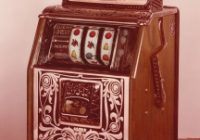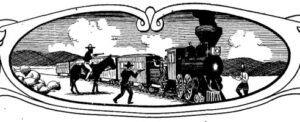|
Listen to this Gambling History blog post here
Getting your Trinity Audio player ready...
|
 1906-1909
1906-1909
An underage young man, Master Wadell, gambled at various games from poker to faro and lost big over the winter of 1906-1907.
His preferred playhouse was the Sixty-Six casino in the mining town of Rhyolite, Nevada. Subsequently, he sued the club’s three owners for what he claimed were his total losses — $10,000 (about $240,000 today).
During the trial in 1909, testimony revealed the proprietors allegedly had cheated repeatedly at various games, thereby swindling him out of large sums. None of that mattered, though, as the question before the court was whether or not a minor had the right to recoup money lost from gambling.
Wadell’s attorney argued that the defendants must repay Wadell as Nevada law prohibits casino proprietors from allowing minors into their establishments, never mind letting them gamble. He said that rule stood regardless of whether the individual said he was of age or looked it.
In the case of Wadell v. the Sixty-Six, the club owners’ counsel argued the law stated if an individual claimed to be 21, he couldn’t, after losing in a gambling house, take advantage of his own fraud and sue to recover his losses. Further, no statute existed that allowed for the recovery of money lost from gambling, he said.
Nevada law at the time — when some kinds of gambling were legal — stated that it was a misdemeanor for any gambling operator to knowingly allow anyone under age 21 to enter or play in their licensed club. (Previously, as of 1869, the legal gambling age had been 17.) To further protect minors, lawmakers in 1897 had allowed for parents of a minor to collect, in a civil action, between $50 and $1,000 from proprietors who’d allowed that child to spend time or play games in their gambling rooms.
In what was the first case of its kind in The Silver State, the jury found in Wadell’s favor in the amount of $2,762.40 (about $66,000 today).
“The decision makes a landmark in Nevada litigation and was one of the most hotly contested and longest cases ever tried in the state,” The Tonopah Sun reported (Reno Evening Gazette, June 8, 1909).







1 comment